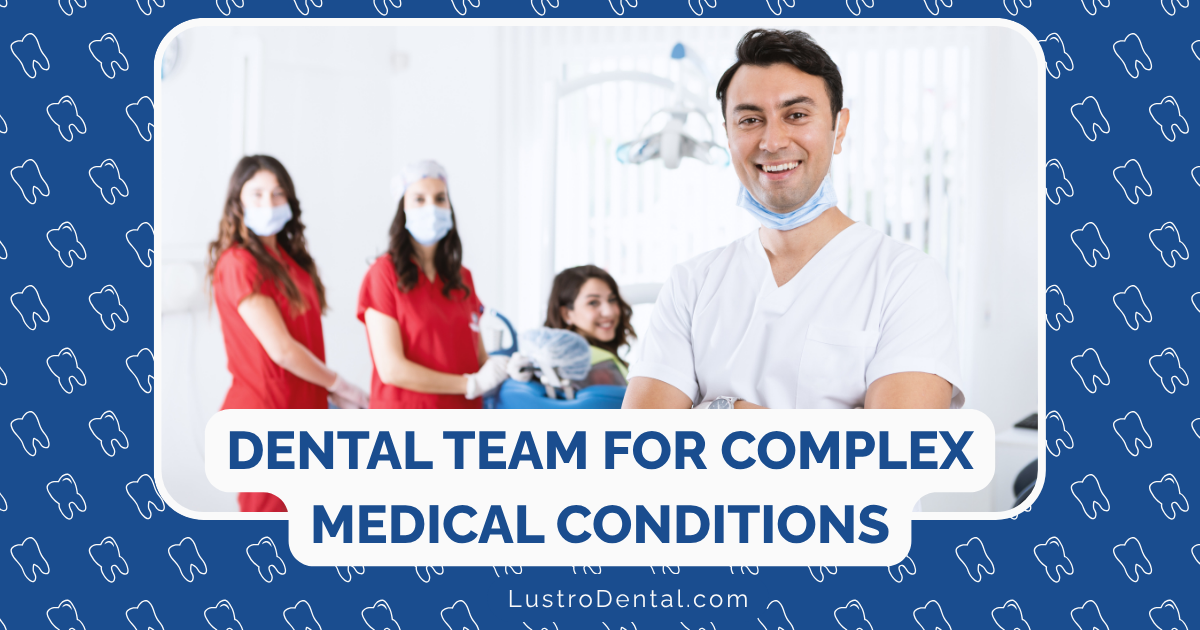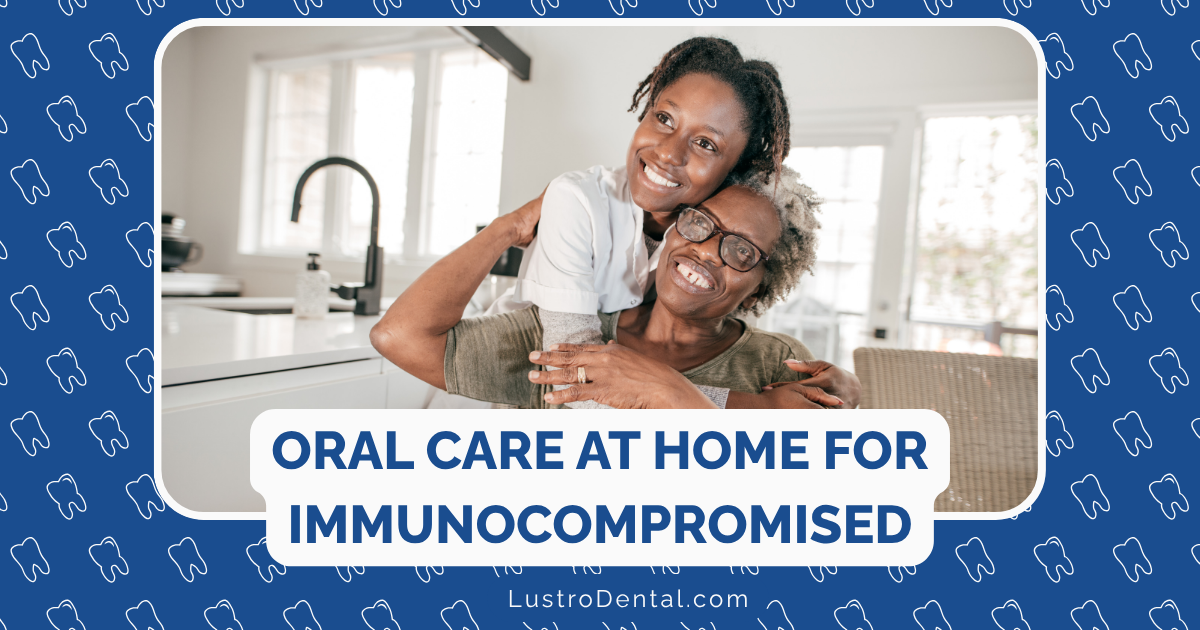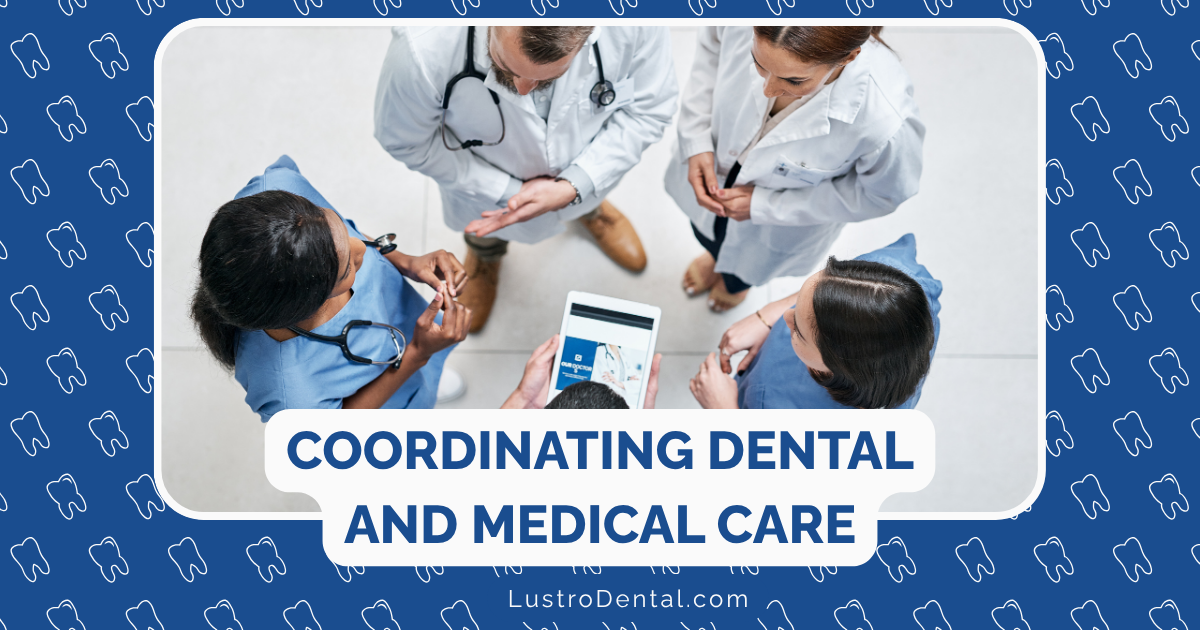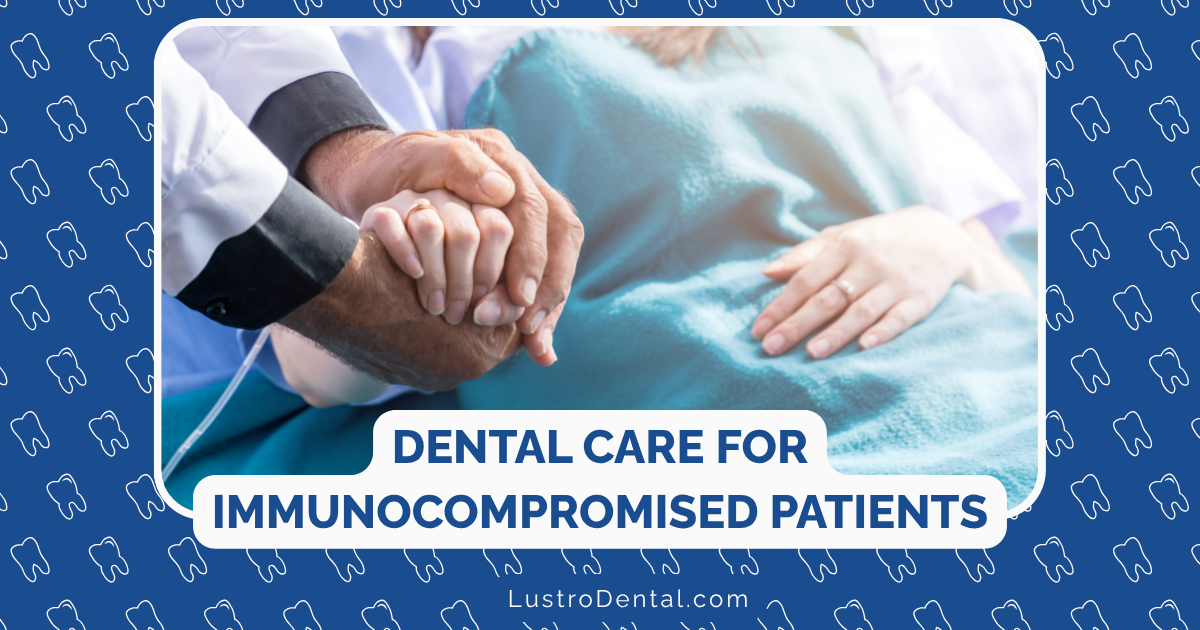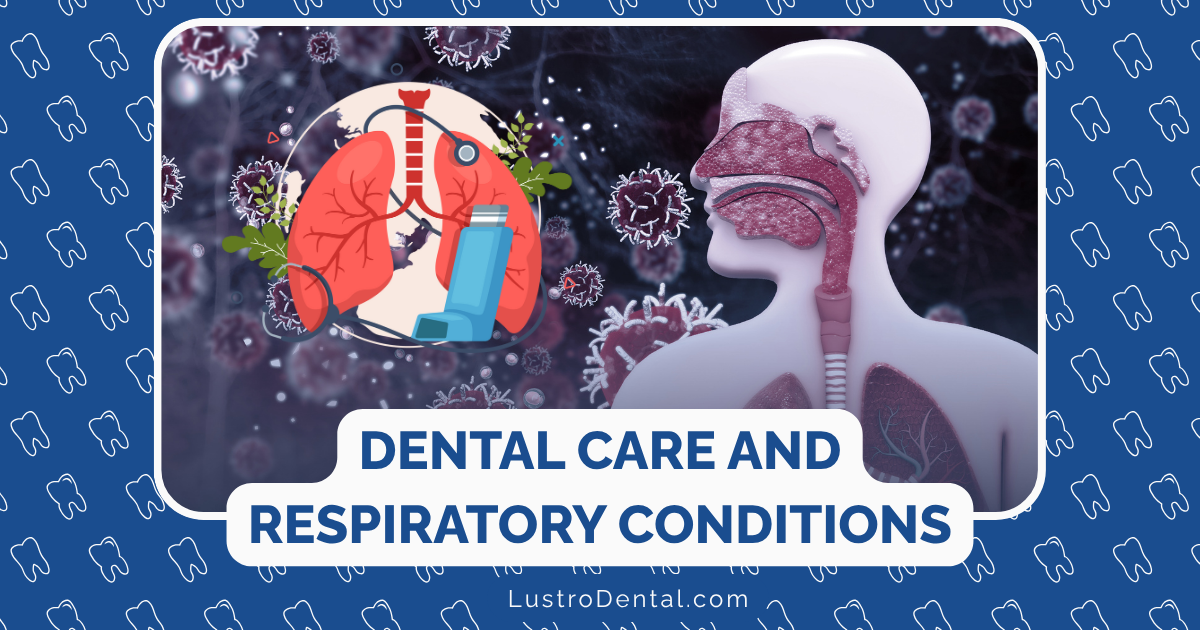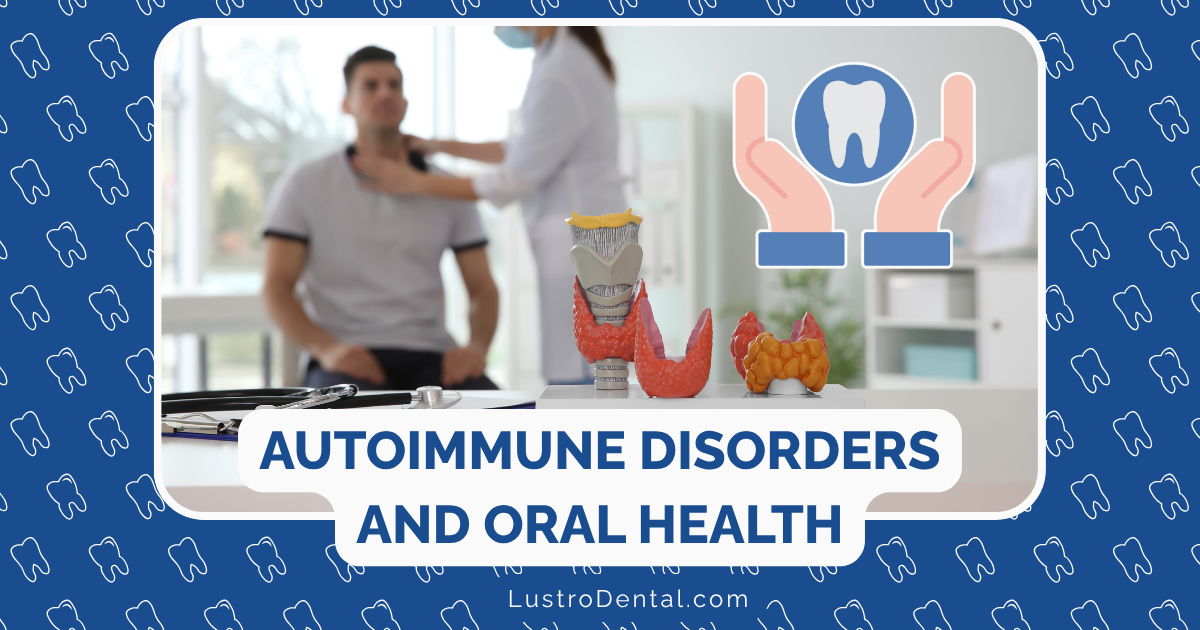Preventing Oral Infections When Your Immune System Is Compromised
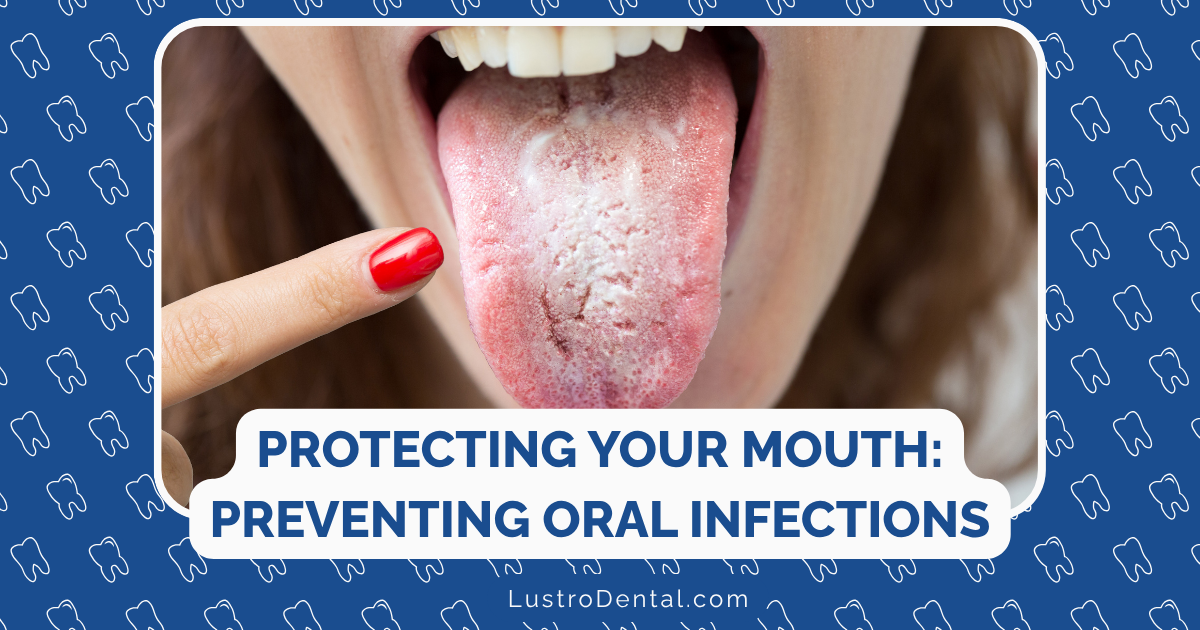
When your immune system is compromised—whether from cancer treatment, autoimmune disorders, organ transplantation, or other medical conditions—maintaining oral health becomes not just about preventing cavities, but a critical component of your overall health protection strategy. The mouth can become a gateway for infections that may have serious consequences for individuals with weakened immune defenses.
According to research published in PMC, infections associated with oral health issues can lead to life-threatening systemic sepsis, especially during periods of profound immunosuppression. The rate of infection during chemotherapy cycles with oral complications like mucositis is more than double compared to cycles without these complications.
This comprehensive guide provides evidence-based strategies to help you maintain optimal oral health when your immune system is compromised, potentially preventing serious complications and improving your quality of life.
Understanding the Risks: Common Oral Problems in Immunocompromised Individuals
When your immune system is weakened, your mouth becomes more susceptible to various infections and complications:
Oral Candidiasis (Thrush):
This fungal infection appears as creamy white, slightly raised lesions on the tongue, inner cheeks, or back of the throat. In immunocompromised individuals:
- Candidiasis occurs more frequently and with greater severity
- The infection may spread to the esophagus (esophageal candidiasis)
- It can be more resistant to standard treatments
- According to Research Gate, the prevalence of oral candidiasis in immunocompromised patients can reach up to 40%, depending on the underlying condition and treatment regimen
Oral Mucositis:
This painful inflammation and ulceration of the mucous membranes lining the mouth is particularly common during cancer treatments:
- Affects approximately 40% of patients receiving standard chemotherapy
- Incidence rises to 75-80% in patients receiving high-dose chemotherapy before stem cell transplantation
- Occurs in 29-66% of patients receiving radiation therapy for head and neck cancer
- Can significantly impact nutrition, hydration, and quality of life
- Increases the risk of local and systemic infections
Periodontal (Gum) Disease:
Gum disease progresses more rapidly and severely in immunocompromised individuals:
- Inflammation may be more pronounced
- Tissue destruction can occur more quickly
- Response to standard treatments may be diminished
- Can lead to bacteremia (bacteria in the bloodstream)
Viral Infections:
Herpes simplex virus and other viral infections can be more problematic:
- Cold sores may be larger, more painful, and slower to heal
- Herpes infections may spread more extensively
- Viral infections like cytomegalovirus may manifest in the mouth
- Epstein-Barr virus can cause oral hairy leukoplakia in severely immunocompromised patients
Xerostomia (Dry Mouth):
Many medications and treatments can cause dry mouth, which:
- Reduces the protective benefits of saliva
- Increases risk of tooth decay
- Creates a more favorable environment for infections
- Makes eating, swallowing, and speaking more difficult
Essential Oral Hygiene Protocols
Maintaining meticulous oral hygiene is your first line of defense against infections. The American Dental Association recommends the following protocols:
Daily Brushing
- Frequency: Brush at least twice daily (morning and before bed)
- Toothbrush: Use a soft-bristled, nylon toothbrush
- Replace your toothbrush every 3-4 weeks, or sooner if bristles become frayed
- Consider using an ultra-soft brush if your gums are sensitive or bleeding
- Electric toothbrushes can be used if gentle pressure is applied
- Technique: Use gentle, circular motions at a 45-degree angle to the gumline
- Duration: Brush for a full two minutes
- After brushing: Rinse your toothbrush thoroughly and store upright to air dry
- If conventional brushing isn’t possible: Foam brushes or gauze wrapped around a finger with a gentle cleanser can be alternatives
Toothpaste Selection
- Use mild-flavored fluoride toothpaste
- Avoid whitening, “tartar control,” or strongly flavored varieties that may irritate sensitive tissues
- Consider prescription-strength fluoride toothpaste (5000 ppm) if recommended by your dentist, especially if you have dry mouth
Interdental Cleaning
- Clean between teeth once daily using:
- Waxed floss (gentler than unwaxed)
- Interdental brushes for larger spaces
- Water flossers on a gentle setting
- Use atraumatic techniques to avoid tissue damage
- If your platelet count is low (<50,000/mm³), consult your healthcare provider before flossing
Mouth Rinses
- Alcohol-free rinses: Alcohol-based products can dry and irritate tissues
- Saline rinse: Mix ¼ teaspoon salt in 1 cup of warm water
- Sodium bicarbonate rinse: Mix ¼ teaspoon baking soda in 1 cup of warm water
- Frequency: Rinse every 2-4 hours while awake, especially after meals
- Prescription rinses: Your healthcare provider may prescribe:
- Chlorhexidine gluconate (antimicrobial)
- Nystatin (antifungal)
- “Magic mouthwash” formulations (combinations of ingredients to soothe pain and fight infection)
Lip Care
- Apply water-based or lanolin-based lip balm regularly
- Avoid petroleum-based products if you’re receiving oxygen therapy
- Reapply frequently, especially if you have dry mouth
Specialized Care for Specific Conditions
Different immunocompromising conditions may require tailored approaches:
Cancer Treatment (Chemotherapy and Radiation)
Before Treatment Begins
- Schedule a comprehensive dental exam 2-4 weeks before starting treatment
- Complete any necessary dental work before beginning cancer therapy
- Establish a preventive care plan with your dentist
During Chemotherapy
- Oral hygiene: Maintain meticulous oral care using the protocols above
- Mucositis management:
- Cryotherapy (ice chips) during certain chemotherapy infusions may reduce mucositis
- Palifermin (a growth factor) may be prescribed before high-dose chemotherapy
- Avoid spicy, acidic, rough, or very hot foods
- Infection prevention:
- Monitor your mouth daily for any changes
- Report white patches, ulcers, or unusual bleeding promptly
During Head and Neck Radiation
- Fluoride trays: Custom trays with prescription fluoride gel used daily
- Jaw exercises: To prevent or minimize trismus (restricted jaw opening)
- Frequent dental check-ups: Often every 4-6 weeks during treatment
- Saliva substitutes: To manage xerostomia
HIV/AIDS
- Frequent monitoring: Regular oral examinations to detect early signs of infection
- Antifungal prophylaxis: May be recommended if CD4+ count is very low
- Aggressive periodontal care: More frequent professional cleanings
- Oral manifestations to watch for: Candidiasis, hairy leukoplakia, Kaposi’s sarcoma, aphthous ulcers
Transplant Recipients
- Pre-transplant: Complete dental clearance before transplantation
- Post-transplant (early): Gentle oral hygiene with emphasis on preventing infection
- Long-term: Regular dental care coordinated with transplant team
- Medication considerations: Be aware of oral side effects of immunosuppressive drugs (e.g., gingival hyperplasia with cyclosporine)
Professional Dental Care Considerations
Regular professional dental care remains important, though timing and approach may need adjustment:
When to Schedule Dental Visits
- Cancer patients: Coordinate with oncology team
- Best timing is often when blood counts are highest (typically 17-21 days after chemotherapy)
- Postpone elective procedures if:
- Absolute neutrophil count (ANC) < 1,000/mm³
- Platelet count < 50,000/mm³
- Transplant patients: Follow transplant team recommendations
- Emergency care only in first 3 months post-transplant
- Routine care usually resumed 6-12 months post-transplant
- HIV patients: Regular schedule based on oral health needs and viral load/CD4+ count
Communicating with Your Dental Team
Always inform your dental provider about:
- Your specific immunocompromising condition
- Current medications
- Recent laboratory values
- Contact information for your medical specialists
Antibiotic Prophylaxis
According to the Science Direct review, antibiotic prophylaxis before dental procedures may be recommended for certain immunocompromised patients, though guidelines vary. Discuss with both your medical and dental providers whether you need antibiotics before dental procedures.
Managing Common Oral Complications
Dry Mouth (Xerostomia)
Dry mouth is a common side effect of many medications and treatments:
Hydration Strategies
- Sip water frequently throughout the day
- Use a humidifier in your bedroom at night
- Avoid caffeine, alcohol, and tobacco, which can worsen dryness
- Consider sugar-free gum or lozenges to stimulate saliva (xylitol-containing products preferred)
Products for Dry Mouth
- Over-the-counter saliva substitutes
- Prescription medications to stimulate saliva production (e.g., pilocarpine, cevimeline)
- Mouth moisturizing gels, especially for nighttime use
- Fluoride supplements to prevent decay
Oral Mucositis
If mucositis develops despite preventive efforts:
Pain Management
- Topical anesthetics (lidocaine-based products)
- Systemic pain medications as prescribed
- “Magic mouthwash” formulations
- Benzydamine hydrochloride rinses (if available)
Dietary Adaptations
- Soft, bland foods at room temperature
- Avoid spicy, acidic, rough-textured foods
- Use a straw for liquids to bypass painful areas
- Nutritional supplements if eating is difficult
Oral Candidiasis (Thrush)
For fungal infections:
Treatment Options
- Topical antifungals (nystatin rinse, clotrimazole troches)
- Systemic antifungals for severe cases (fluconazole)
- Continue treatment for 48 hours after symptoms resolve
Prevention Strategies
- Thorough oral hygiene
- Denture hygiene (if applicable)
- Rinse mouth after using steroid inhalers
- Sugar reduction (fungi thrive on sugar)
Nutritional Support for Oral Health
Nutrition plays a crucial role in maintaining oral health when immunocompromised:
Immune-Supporting Nutrients
- Protein: Essential for tissue repair and immune function
- Vitamin C: Supports gum health and wound healing
- Vitamin D: Important for immune function and bone health
- Zinc: Supports tissue repair and immune function
- Antioxidants: Help combat inflammation
Dietary Recommendations
- Texture modifications: Soft or pureed foods if chewing is painful
- Temperature considerations: Avoid temperature extremes
- Nutrient density: Focus on nutrient-rich foods even when appetite is poor
- Hydration: Adequate fluid intake is essential for oral health
Supplements
- Consult healthcare providers before starting any supplements
- Consider liquid or chewable forms if swallowing pills is difficult
- Be aware of potential interactions with medications
When to Seek Medical Attention
Some oral symptoms require prompt medical evaluation. Contact your healthcare provider if you experience:
- Fever (often the first sign of infection in immunocompromised individuals)
- Mouth sores that don’t heal within 7-10 days
- Bleeding from the gums that doesn’t stop with gentle pressure
- White patches on the tongue, cheeks, or roof of the mouth
- Difficulty swallowing or breathing
- Severe mouth pain that interferes with eating or drinking
- Swelling in the face, neck, or mouth
Special Considerations for Caregivers
If you’re caring for someone who is immunocompromised:
Assisting with Oral Care
- Wash hands thoroughly before helping with oral care
- Use clean or disposable gloves if touching inside the mouth
- Be gentle but thorough
- Provide encouragement and positive reinforcement
Creating Routines
- Establish consistent oral care times
- Set up a comfortable area with all needed supplies
- Break tasks into manageable steps
- Use timers or music to ensure adequate brushing time
Monitoring Oral Health
- Check the mouth regularly for any changes
- Document and photograph concerns to share with healthcare providers
- Keep a log of symptoms and interventions
Emerging Treatments and Research
Research continues to advance our understanding of preventing oral complications in immunocompromised individuals:
Promising Approaches
- Photobiomodulation (low-level laser therapy): Shows promise for preventing and treating oral mucositis
- Growth factors: Medications like palifermin that stimulate cell growth and healing
- Novel antimicrobial approaches: New strategies to control oral bacteria and fungi
- Improved saliva substitutes: Better formulations to mimic natural saliva functions
Clinical Trials
Consider asking your healthcare provider about clinical trials investigating new approaches to preventing oral complications in immunocompromised patients.
Building Your Support Team
Managing oral health when immunocompromised requires a team approach:
Key Team Members
- Dentist: Ideally one experienced with medically complex patients
- Dental hygienist: For professional cleanings and education
- Primary care provider: To coordinate overall health care
- Specialists: Oncologist, infectious disease specialist, transplant team, etc.
- Nutritionist: For dietary guidance supporting oral health
- Pharmacist: To help manage medication side effects and interactions
Communication Strategies
- Keep a current medication list
- Maintain a health journal documenting symptoms and concerns
- Consider bringing an advocate to appointments to help remember information
- Ask for written instructions for oral care protocols
Conclusion: A Proactive Approach
When your immune system is compromised, preventing oral infections requires vigilance, knowledge, and consistent care. By implementing comprehensive oral hygiene protocols, working closely with healthcare providers, and promptly addressing any concerns, you can significantly reduce your risk of oral complications.
Remember that oral health is an integral part of your overall health, particularly when immunocompromised. The effort you invest in maintaining good oral hygiene may not only prevent discomfort but could potentially prevent serious infections that might compromise your treatment or recovery.
By taking a proactive approach to oral health, you’re giving yourself an important advantage in your journey toward wellness.
Do you have experience managing oral health with a compromised immune system? Share your tips and experiences in the comments below to help others navigating similar challenges.


